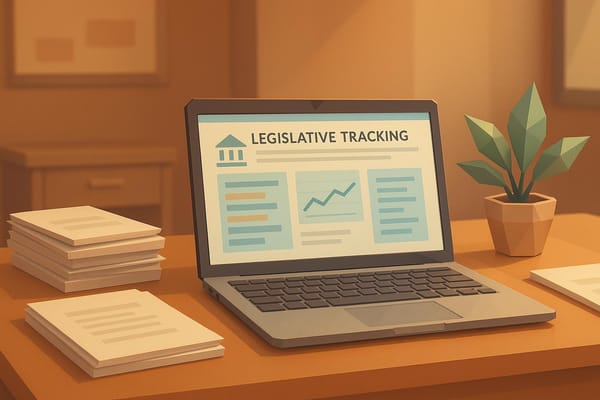New Legislation on Maritime Data Usage

The recent passage of SB152 in Alabama marks a significant update to the state’s maritime regulations, focusing on the piloting of vessels in local waterways. This legislation has raised considerable interest among maritime professionals, lawmakers, and local businesses alike due to its implications for harbor safety and pilotage efficiency. As Alabama continues to develop its port facilities and enhance its maritime capabilities, understanding the nuances of SB152 is crucial for stakeholders involved in shipping and navigation.
SB152, introduced by Senators Sessions, Williams, and Figures, is particularly notable for its provisions on maritime data usage. It mandates that any maritime data produced by foreign entities or local businesses must receive explicit approval from the State Pilotage Commission before being employed in pilotage practices. This ensures that only vetted and reliable information is used, contributing to safer navigation. In this blog post, we will explore the key components of the bill, its potential impacts on the maritime industry, and what's next for Alabama's maritime regulations.
Overview of SB152
SB152 aims to amend Section 33-4A-13 of the Code of Alabama 1975. The core of the legislation empowers the State Pilotage Commission with greater oversight regarding the rules and regulations that govern the piloting of ships into and out of Alabama's harbors. The primary goal is to ensure that safe and effective pilotage practices are upheld, particularly in the bustling Port of Mobile.
A notable inclusion in the bill is the requirement for all maritime data used in pilotage to be preapproved by the commission. This provision is designed to mitigate risks associated with the unregulated use of potentially unreliable data sources, thereby enhancing the safety of vessel navigation. According to the text of the bill,
"Maritime data produced by foreign states or by a foreign or domestic company must be expressly preapproved by the commission for any official use in pilotage."
Implications for the State Pilotage Commission
As a result of SB152, the State Pilotage Commission will have expanded authority to establish rules governing the piloting process. This is vital for maintaining safe shipping practices as it involves assessing the physical and mental fitness of active bar pilots. With the pressure of ensuring maritime safety resting heavily on their shoulders, the commission must carefully consider its criteria and regulatory framework.
The commission's power to require proof of a pilot's fitness at any time further emphasizes the importance of maintaining high standards within the profession. The legislation states,
"The commission shall also have the power and authority to may require evidence of the physical and mental fitness of any active bar pilot at any time..."
Given the inherently risky nature of maritime navigation, this aspect of the bill is particularly crucial to preventing accidents in Alabama's vital shipping routes.
Impact on Local Businesses
Local businesses that rely on the Port of Mobile for shipping and receiving goods will feel the effects of these new regulations. The need for preapproved maritime data could potentially lead to increased operational costs for companies utilizing foreign or unverified local data sources. However, while these regulations may pose challenges, they also have the potential to increase safety, which is a paramount concern for businesses operating in the maritime sector.
Businesses must now adapt to this new regulatory landscape, ensuring that their navigation practices are compliant with the updated provisions. This may involve developing new relationships with data providers or investing in verification processes to ensure their data meets the commission's standards.
Potential Benefits of the Legislation
Despite the challenges posed by SB152, there are several potential benefits stemming from the passage of this legislation. By ensuring that only vetted maritime data is utilized in pilotage, the bill promotes safer navigation practices that can help reduce accidents and incidents related to pilotage errors.
Additionally, this move toward regulatory oversight could enhance Alabama's reputation as a leading maritime destination. As safety and professionalism in pilotage improve, the state may attract more shipping traffic, benefitting local economies and supporting job creation in the maritime sector.
Next Steps & Implementation Timeline
SB152 is set to take effect on October 1, 2024, providing ample time for the State Pilotage Commission and affected stakeholders to prepare for the transition. During this period, it is essential for local businesses to familiarize themselves with the new rules and guidelines to ensure compliance.
Moreover, the commission is expected to develop clear regulations and criteria for data approval processes, which will be crucial in facilitating smooth implementation. Communication between the commission and maritime industry representatives will play a key role in achieving successful outcomes.
Conclusion and Final Thoughts
In conclusion, SB152 represents a significant shift in Alabama's approach to maritime pilotage, prioritizing safety and regulatory oversight. The implications of this legislation will be widespread, affecting the operations of the State Pilotage Commission, local businesses, and ultimately the safety of maritime navigation.
Key takeaways include the need for businesses to adapt to new safety protocols, the importance of preapproved maritime data, and the potential for enhanced safety standards to benefit Alabama’s broader maritime industry. Moving forward, stakeholders must engage with the commission to navigate this new regulatory landscape effectively. By establishing a collaborative approach, Alabama can ensure that it maintains its competitive edge as a crucial player in maritime commerce.




